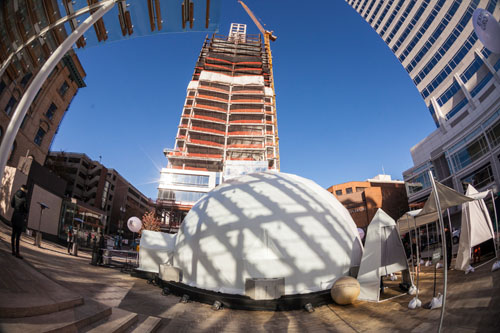BY JON SHADEL
Through its support of the arts, the Cultural Trust is strengthening the business community.
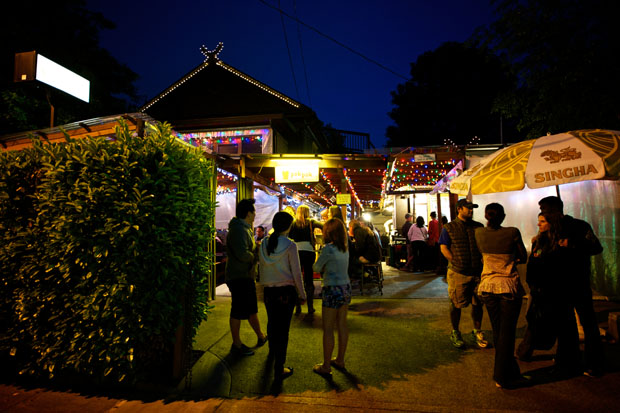
BY JON SHADEL
“Leaders know that establishing themselves in a vibrant, creative community is good for business,” says Brian Rogers, executive director of the Oregon Cultural Trust. The Cultural Trust is a funding and promotional organization that makes over $1.8 million a year in grants to state partners, county coalitions and nonprofits across Oregon. Rogers says the trust works to support all aspects of culture — broadly defined to include heritage, the arts, history, preservation and the humanities.
 Through its support of the arts, the Cultural Trust is also strengthening the business community. Arts-and-culture related industries have a direct impact on the state’s GDP by creating jobs, attracting investments and stimulating local economies through tourism and commerce. They nurture a more creative workforce, enhance the quality of life and improve community development.
Through its support of the arts, the Cultural Trust is also strengthening the business community. Arts-and-culture related industries have a direct impact on the state’s GDP by creating jobs, attracting investments and stimulating local economies through tourism and commerce. They nurture a more creative workforce, enhance the quality of life and improve community development. 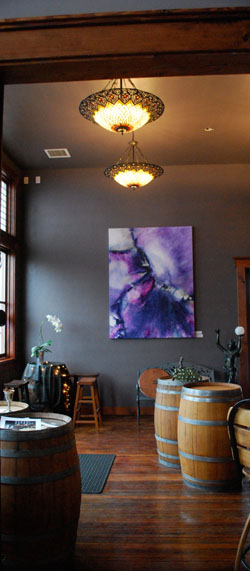
Thanks to the direct and indirect impact of organizations like the Cultural Trust, a flourishing cultural community is strengthening Oregon’s economy in every corner of the state. In small towns like Echo, for example, historic-building restoration is helping the town’s Main Street thrive. In Portland, an entrepreneurial food scene builds on the city’s pioneering spirit and attracts attention from around the nation. And according to a vice president at one of Oregon’s leading banks, the state’s culture-rich offerings help recruit and retain talent and make local businesses more competitive.
Oregon’s pioneer heritage is preserved in Echo’s downtown, where local residents of this small town, population 700, are driving economic growth through historic- building preservation.
 “Echo is just a mile and a half off the freeway, but it feels like it is decades back in time,” says Lloyd Piercy, owner of a local vineyard and an economic development leader. “Folks come here for our charm and history,” Piercy says.
“Echo is just a mile and a half off the freeway, but it feels like it is decades back in time,” says Lloyd Piercy, owner of a local vineyard and an economic development leader. “Folks come here for our charm and history,” Piercy says.
More than a century ago, pioneers traveling along the Oregon Trail began settling along the Umatilla River. Many were first drawn to the location for its agricultural potential — alfalfa and corn were the region’s major crops. A town was platted by 1880, and by 1883 the railroad reached Echo. It soon became a busy shipping point for wool, cattle and sheep.
The buildings erected by early settlers — churches, schoolhouses, shops and homes — aren’t just remnants of the state’s past. They are a crucial part of the town’s economic development. Today its Main Street bustles with small shops, pubs and restaurants housed in remodeled 19th- century buildings.
A few decades ago, the picture was quite different. “Before we started the restoration project, Echo was basically empty,” Piercy says. “Even though people loved the town, the buildings had reached a point where they weren’t usable.”
Piercy has worked closely with the State Historic Preservation Office — one of many organizations the Cultural Trust helps fund each year — to restore a half dozen of the town’s buildings, relying on their expertise and guidance to improve each facility with modern updates while ensuring historical accuracy.“It probably would have been more cost-effective to tear down the buildings and start from scratch,” he observes, “but we would have lost one of the town’s best selling points: our historical charm.”
Through its funding and promotion efforts, the Trust helps make projects feasible that aren’t always justifiable on purely economic terms, Piercy adds. For Piercy, this Main Street redevelopment shows how public-private partnerships can result in long-term benefits for the local business community — even when such restorations might not provide immediate returns. “If you take the long-term view,” he says, “you see the economic returns of preserving our heritage in increased tourism and economic activity.”
Three hours west of Echo, the state’s industrious spirit and independent culture manifests in Portland’s food scene. A case in point is startup restaurateur Andy Ricker, one of many restaurant owners who have helped transform the local economy.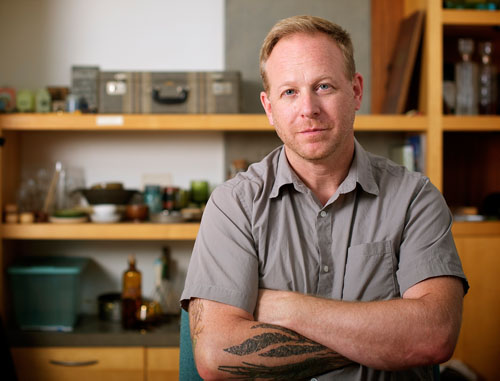
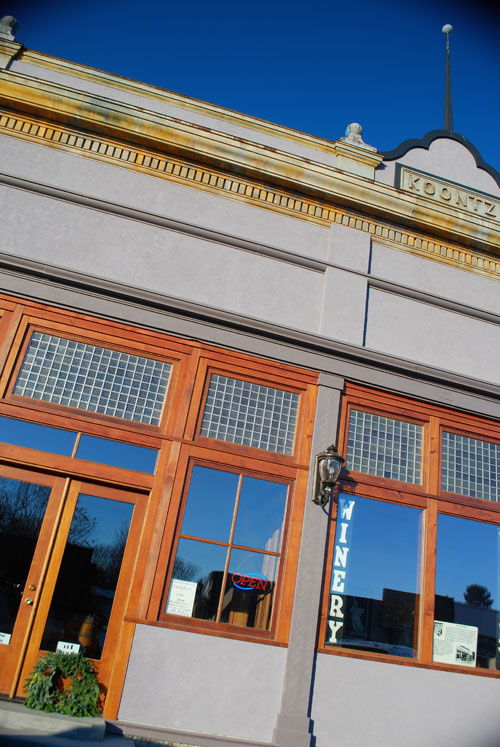 In 2005 Ricker founded his flagship restaurant, Pok Pok, on Southeast Division Street serving northern Thai cuisine years before the neighborhood transformed from a drab residential area to one of the most talked-about food strips in the Northwest. The neighborhood was essentially dead, Ricker explains, “but Portland has a spirit, an adventurous and accepting spirit.” The city’s DIY culture, he says, allowed offbeat establishments to flourish into profitable businesses.
In 2005 Ricker founded his flagship restaurant, Pok Pok, on Southeast Division Street serving northern Thai cuisine years before the neighborhood transformed from a drab residential area to one of the most talked-about food strips in the Northwest. The neighborhood was essentially dead, Ricker explains, “but Portland has a spirit, an adventurous and accepting spirit.” The city’s DIY culture, he says, allowed offbeat establishments to flourish into profitable businesses.
Since the success of his first location, Ricker has published a book, received the James Beard Foundation Award for Best Chef in the Northwest, and opened restaurants and bars in New York and L.A. He has become a sort of rags-to-riches success story and a legend in Portland’s food scene. He also celebrates Portland’s dining culture for attracting tourists and fostering a successful food and beverage industry, and credits the Cultural Trust for helping make that happen.
“We’ve got to keep our dining culture,” Ricker says, explaining how Portland’s reputation as a destination for its arts and culture attracts tourists who support the food scene and pump millions of dollars into the regional economy. “The culture here is very valuable,” he adds. “It’s a thing people are interested in enough to travel here to experience it. That’s crucial.”
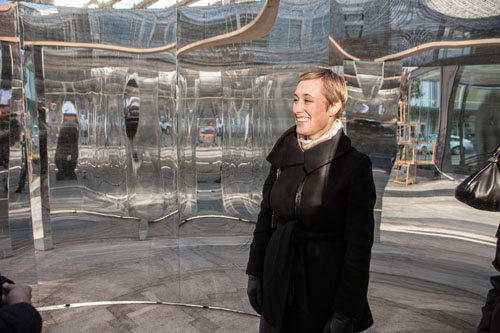 Business leaders echo Ricker’s sentiments. Eve Callahan, senior VP of corporate communications at Umpqua Bank, argues that Oregon’s culture, in the broad sense of the term, is essential for the state’s long-term economic competitiveness.
Business leaders echo Ricker’s sentiments. Eve Callahan, senior VP of corporate communications at Umpqua Bank, argues that Oregon’s culture, in the broad sense of the term, is essential for the state’s long-term economic competitiveness.
“You can measure the economic activity related to culture, and it’s an important metric,” says Callahan, citing data showing nonprofit arts and culture directly generate $253.5 million in annual revenue in the Portland metro region. And across the state, tourism brings in $9.6 billion a year by capitalizing on Oregon’s cultural offerings.
Callahan also argues that the intangible benefits of a culture-rich region are just as important in fostering an innovative workforce and attracting top talent to the state. “The impact culture has on livability and education ensures the long-term prosperity of our communities,” she says. Callahan says intellectual capital and an innovative spirit are key drivers for business success. She suggests these are byproducts of a strong cultural community and one of the main reasons Oregon can attract high-caliber employees. “A lot of the companies that come here recognize you can think differently here and adapt,” she adds.
Callahan cites Umpqua Bank as an example of a company that both nurtures and benefits from the state’s cultural community. Recognizing the influence art has on a community, Umpqua has commissioned sculptures and an experiential art installation for a traveling art show called Exhibit:Growth (embarking on a West Coast tour in early 2015). “Artists have a unique ability to spark conversation,” Callahan says, “and while you can’t always measure that impact, it makes our communities more vibrant and innovative.”
The Cultural Trust and the work it does to support more than 1,400 nonprofits and 45 county and tribal coalitions is essential to promoting and maintaining a vibrant cultural community, Callahan says. “It is important to have organizations like this in the community who connect the dots and understand how culture not only makes this a better place to live, but also strengthens our economy and gives our businesses a competitive edge.” n
Learn more about how Oregonians give to the Cultural Trust and contribute to Oregon’s cultural success at www.culturaltrust.org.
